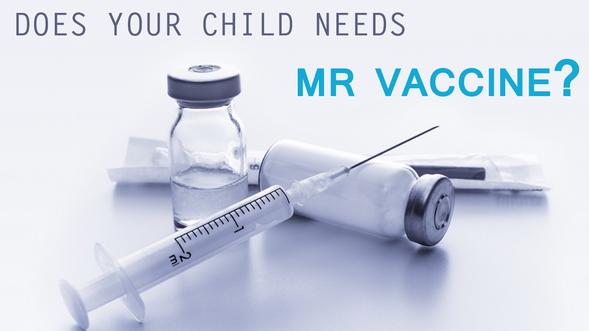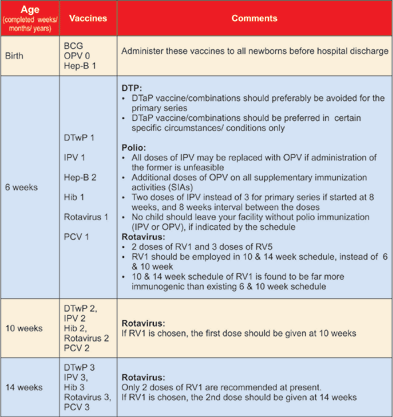
Importance Of Vaccination – “Prevention Is Better Than Cure”
Vaccination is the process of administration of antigen(vaccine) which stimulate body’s immune system to develop acquired immunity.

Introduction to IMMUNITY :
Immunity defense the body against infections caused by microorganisms. Also Immunity is classified into two types such as Natural Immunity and Acquired Immunity.
Here we can see those two Immunity Explanations,
Natural Immunity :
Body contains natural immune components like Intact Skin, Salivary Enzymes, and Neutrophils, Natural Killer Cells, Which provide Natural Immunity against infection prior to exposure to a Pathogen or Antigen.
Acquired Immunity :
Acquired immunity is that which develops antibodies (resistance against infections) after an attack of an infectious disease or by a pregnant mother passing through the placenta to a fetus or by vaccination.

About Vaccination and It’s Importance :
Vaccination is the process of administration of vaccine. A vaccine is a biological preparation that provides active acquired immunity to a particular disease. A vaccine contains an agent that resembles a disease-causing microorganism and is often made from weakened or killed forms of the microbe, its toxins, or one of its surface proteins. Vaccination provide immunity for eradication of smallpox and the prevent the spread of diseases such as polio, measles, and tetanus. The World Health Organization (WHO) reports that licensed vaccines are currently available for twenty-five different preventable infections.
Vaccination given during childhood is generally safe. Some common side effects include fever, pain around the injection site, and muscle aches. Your child’s immune system responds to the antigens in the vaccine by making antibodies to fight the germs and memory cells to remember the germs in case they encounter them in the future. Vaccinations are given by Oral Drops and Injections (needles), usually into the Child’s Upper Arm or Leg.
Some vaccines for children need a series of doses (usually 2 to 4 doses) to reach their full effectiveness. This is called a “primary series”. Booster dose is given for some vaccines after primary doses to refresh the immune system’s memory. If your child misses a vaccine dose, they’ll need “catch-up” doses (also called “supplemental” doses) to ensure that they are protected. Your child may also need a catch-up dose if a new vaccine becomes available after your child has already passed the age.
Importance of Vaccines :
Reasons to Protect Children Through Vaccination :

- Vaccines can save your child’s life. Vaccination protects children from Serious Illness and Complications of Vaccine-Preventable diseases which can include Amputation of an Arm or Leg, Paralysis of Limbs, Hearing Loss, Convulsions, Brain Damage, and Death.
- Outbreaks of preventable diseases occur when many parents decide not to vaccinate their children.
- Vaccination is safe and effective. All vaccines undergo long and careful review by Scientists, Doctors, and The Federal Government to make sure they are safe.
- Organizations such as the American Academy of Pediatrics, The American Academy of Family Physicians, and The Centers for Disease Control & Prevention all strongly support protecting children with recommended vaccinations.
- Vaccination protects others you care about, including Family Members, Friends, and Grandparents.
- If children aren’t vaccinated, they can spread disease to other children who are too young to be vaccinated or to people with weakened immune systems, such as transplant recipients and people with cancer. This could result in long-term complications and even death.
When we have to take and what we have to take :
Vaccination Schedule :
I. IAP (Indian Academy of Pediatrics) recommended vaccines for routine use :


II. IAP (Indian Academy of Pediatrics) recommended vaccines for High-risk* Children (Vaccines under special circumstances) :
- Influenza Vaccine
- Meningococcal Vaccine
- Japanese Encephalitis Vaccine
- Cholera Vaccine
- Rabies Vaccine
- Yellow Fever Vaccine
- Pneumococcal Polysaccharide Vaccine (PPSV 23)
*High-risk category of children :
- Congenital or acquired immunodeficiency (including HIV infections).
- Chronic Cardiac, Pulmonary (including asthma if treated with prolonged high-dose Oral Corticosteroids), Hematologic, Renal (including Nephrotic Syndrome), Liver disease and Diabetes Mellitus.
- Children on long term Steroids, Salicylates, Immunosuppressive or Radiation Therapy.
- Diabetes Mellitus, Cerebrospinal Fluid Leak, Cochlear Implant, Malignancies.
- Children with functional / Anatomic Asplenia / hyposplenia.
- During disease outbreaks.
- Laboratory personnel and healthcare workers
- Travelers

I’m a professional dentist, have completed Internship in one of the government hospital in Tamilnadu and as well as a part time blogger. Check my posts here and give your valuable comments. Stay healthy everyone.
disease, featured, immunity, prevention, vaccination, vaccine








